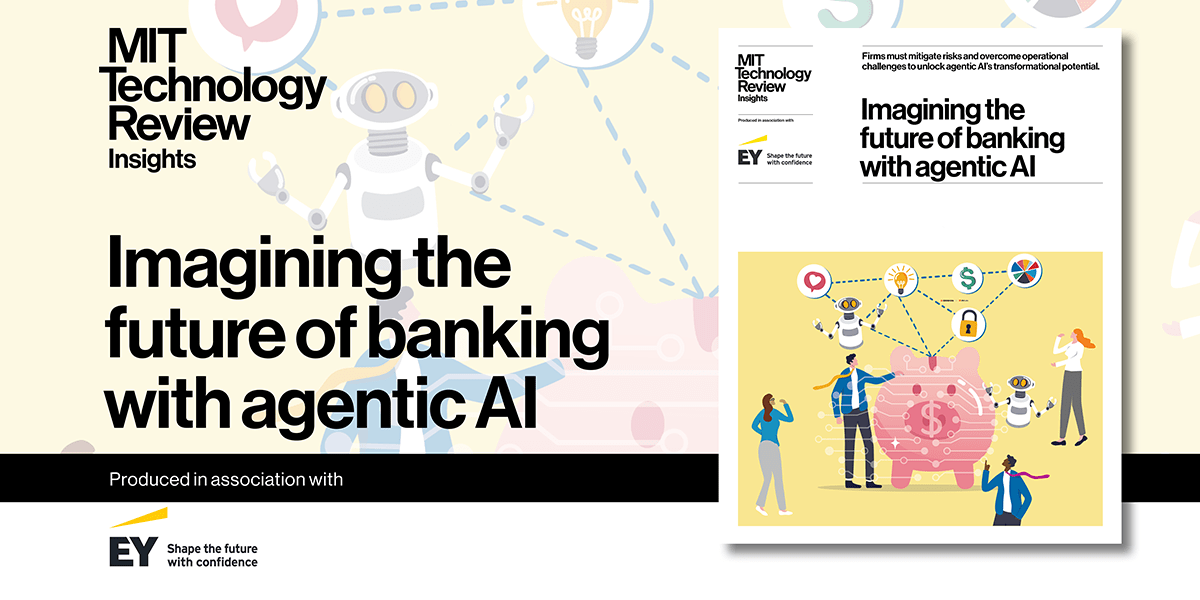Blog
Imagining the future of banking with agentic AI

Envisioning the Future of Banking with Agentic AI
The world of banking is undergoing a significant transformation, driven largely by advancements in technology. Among the leading innovations is the concept of agentic artificial intelligence (AI). This technology promises to revolutionize how financial institutions operate, enhance customer experiences, and ensure greater security and efficiency in transactions.
What is Agentic AI?
Agentic AI refers to intelligent systems capable of performing tasks autonomously, without the need for constant human oversight. These systems can learn from data, adapt to changes, and make informed decisions based on real-time information. In the realm of banking, agentic AI has the potential to optimize operations, personalize services, and mitigate risks more effectively than traditional methods.
The Role of Agentic AI in Banking
Enhancing Customer Experiences
One of the most exciting applications of agentic AI in banking is the enhancement of customer experiences. Financial institutions are constantly striving to offer personalized services that cater to individual needs. Agentic AI can analyze customer data, preferences, and behaviors to provide tailored recommendations, whether it’s suggesting relevant financial products or optimizing service channels.
For instance, chatbots powered by agentic AI can engage with customers around the clock, providing instant responses to inquiries and guiding users through complex banking processes. This level of responsiveness not only improves customer satisfaction but also reduces the operational burden on human employees.
Streamlining Operations and Reducing Costs
Agentic AI can help banks streamline their internal operations significantly. By automating routine tasks such as transaction processing, compliance checks, and report generation, financial institutions can reduce the workload on staff. This cost-saving mechanism allows banks to redirect resources toward innovation and service improvement.
Moreover, AI-driven analytics enable banks to forecast trends and optimize resource allocation. For example, predictive algorithms can identify periods of high demand, allowing institutions to manage their workforce and infrastructure efficiently.
Risk Management and Security
Identifying Fraudulent Activities
In an increasingly digital environment, security is paramount. Agentic AI systems excel in detecting anomalies that may indicate fraudulent activities. By analyzing transaction patterns in real-time, these systems can flag suspicious behavior for further investigation, thereby minimizing potential losses.
Furthermore, continuous learning enables agentic AI to adapt to evolving fraud tactics. This proactive approach can significantly enhance a bank’s ability to safeguard customer information and maintain trust.
Navigating Regulatory Compliance
The financial sector is notoriously complex, with ever-changing regulations that can be difficult to navigate. Agentic AI can assist banks in automating compliance processes, reducing human error, and ensuring adherence to regulatory requirements. By continuously monitoring transactions and analyzing changes in legislation, AI systems can keep financial institutions aligned with legal standards.
The Future of Personalized Banking
Tailored Financial Solutions
As agentic AI continues to evolve, the concept of personalized banking becomes even more attainable. Financial institutions can anticipate customers’ needs by employing advanced algorithms that analyze transaction history, life events, and other relevant factors. This proactive approach allows banks to offer customized products, from tailored investment portfolios to personalized loan options.
Proactive Financial Guidance
Another promising application of agentic AI is in providing proactive financial guidance. Instead of solely reacting to customer requests, banks can leverage AI to offer timely advice and insights based on individual financial statuses. For example, AI can alert customers about potential savings opportunities, recommend investment changes, or suggest strategies for debt management.
Challenges Ahead
Ethical Considerations
While the benefits of agentic AI are promising, there are ethical considerations that must be addressed. Concerns around data privacy and the potential for biased algorithms exist, necessitating careful oversight in deploying such technologies. Banks must adopt transparent practices and ensure that their AI systems are crafted to serve all customers fairly.
Integration with Legacy Systems
Many financial institutions still rely on outdated technology infrastructures. Integrating agentic AI into these legacy systems poses challenges, requiring significant investment and strategic planning. Banks must strike a balance between innovation and operational continuity as they, and the industry, move into the AI-driven future.
The Road Ahead
The integration of agentic AI in banking is not merely an enhancement; it represents a fundamental shift in how financial institutions operate. As banks harness the potential of this technology, they will unlock new levels of efficiency, security, and personalized service. The successful implementation of AI solutions will hinge on banks’ ability to navigate ethical dilemmas and integrate new technologies seamlessly.
Conclusion
In summary, the future of banking is poised for a remarkable transformation with the integration of agentic AI. This technology stands to enhance customer experiences, streamline operations, manage risks effectively, and offer personalized financial solutions. While challenges exist, the commitment to responsible AI development and deployment will ensure that financial institutions can thrive in this new digital landscape. As we look ahead, embracing agentic AI will be essential in shaping a banking ecosystem that is not only efficient and secure but also centered around customer needs and preferences.

